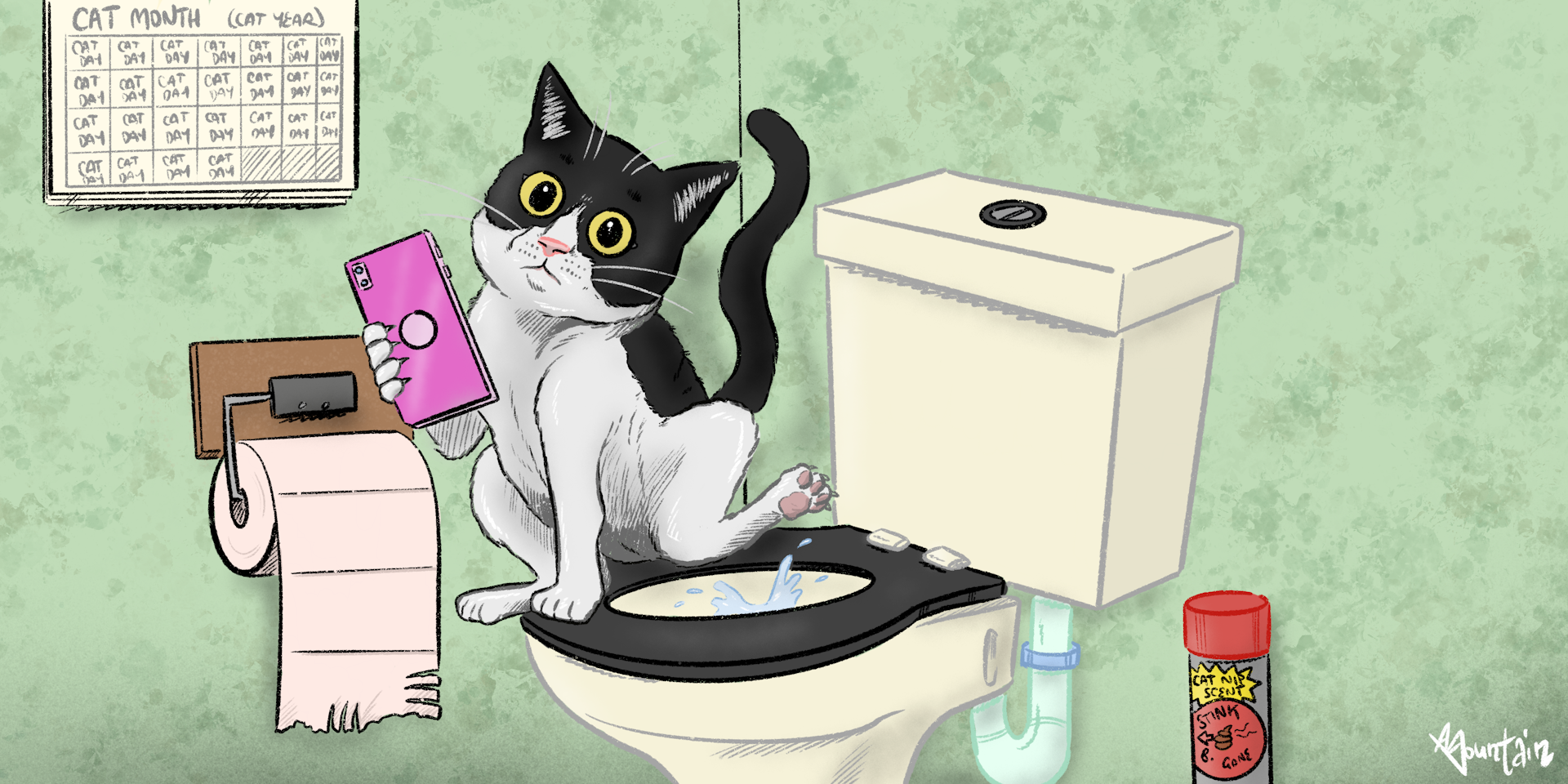Reasons You Shouldn't Flush Cat Poop Down Your Toilet - Preserve Your Plumbing Health
Reasons You Shouldn't Flush Cat Poop Down Your Toilet - Preserve Your Plumbing Health
Blog Article
We've uncovered this great article relating to How to Dispose of Cat Poop and Litter Without Plastic Bags down the page on the web and accepted it made good sense to write about it with you on this page.

Intro
As feline owners, it's important to be mindful of just how we get rid of our feline buddies' waste. While it might seem hassle-free to flush cat poop down the bathroom, this practice can have damaging consequences for both the atmosphere and human health.
Ecological Impact
Purging cat poop presents damaging virus and parasites into the water, positioning a substantial risk to marine communities. These impurities can negatively affect marine life and compromise water top quality.
Wellness Risks
In addition to environmental worries, purging cat waste can likewise posture health dangers to human beings. Cat feces might have Toxoplasma gondii, a parasite that can trigger toxoplasmosis-- a possibly severe disease, specifically for pregnant women and people with damaged immune systems.
Alternatives to Flushing
Luckily, there are safer and extra responsible means to dispose of feline poop. Take into consideration the adhering to alternatives:
1. Scoop and Dispose in Trash
The most typical approach of dealing with feline poop is to scoop it into a naturally degradable bag and toss it in the garbage. Make certain to make use of a committed trash scoop and throw away the waste promptly.
2. Use Biodegradable Litter
Choose naturally degradable pet cat clutter made from products such as corn or wheat. These litters are environmentally friendly and can be safely gotten rid of in the garbage.
3. Hide in the Yard
If you have a backyard, take into consideration hiding pet cat waste in a designated area away from veggie yards and water resources. Make certain to dig deep adequate to stop contamination of groundwater.
4. Set Up a Pet Waste Disposal System
Purchase a family pet garbage disposal system particularly developed for feline waste. These systems utilize enzymes to break down the waste, decreasing odor and environmental influence.
Verdict
Accountable family pet ownership prolongs beyond providing food and shelter-- it also entails correct waste administration. By refraining from flushing cat poop down the toilet and opting for different disposal techniques, we can reduce our environmental footprint and shield human health and wellness.
Why Can’t I Flush Cat Poop?
It Spreads a Parasite
Cats are frequently infected with a parasite called toxoplasma gondii. The parasite causes an infection called toxoplasmosis. It is usually harmless to cats. The parasite only uses cat poop as a host for its eggs. Otherwise, the cat’s immune system usually keeps the infection at low enough levels to maintain its own health. But it does not stop the develop of eggs. These eggs are tiny and surprisingly tough. They may survive for a year before they begin to grow. But that’s the problem.
Our wastewater system is not designed to deal with toxoplasmosis eggs. Instead, most eggs will flush from your toilet into sewers and wastewater management plants. After the sewage is treated for many other harmful things in it, it is typically released into local rivers, lakes, or oceans. Here, the toxoplasmosis eggs can find new hosts, including starfish, crabs, otters, and many other wildlife. For many, this is a significant risk to their health. Toxoplasmosis can also end up infecting water sources that are important for agriculture, which means our deer, pigs, and sheep can get infected too.
Is There Risk to Humans?
There can be a risk to human life from flushing cat poop down the toilet. If you do so, the parasites from your cat’s poop can end up in shellfish, game animals, or livestock. If this meat is then served raw or undercooked, the people who eat it can get sick.
In fact, according to the CDC, 40 million people in the United States are infected with toxoplasma gondii. They get it from exposure to infected seafood, or from some kind of cat poop contamination, like drinking from a stream that is contaminated or touching anything that has come into contact with cat poop. That includes just cleaning a cat litter box.
Most people who get infected with these parasites will not develop any symptoms. However, for pregnant women or for those with compromised immune systems, the parasite can cause severe health problems.
How to Handle Cat Poop
The best way to handle cat poop is actually to clean the box more often. The eggs that the parasite sheds will not become active until one to five days after the cat poops. That means that if you clean daily, you’re much less likely to come into direct contact with infectious eggs.
That said, always dispose of cat poop in the garbage and not down the toilet. Wash your hands before and after you clean the litter box, and bring the bag of poop right outside to your garbage bins.
https://trenchlesssolutionsusa.com/why-cant-i-flush-cat-poop/

Do you enjoy reading about Don’t flush cat feces down the toilet? Post a remark further down. We will be interested to see your feelings about this post. In hopes that you visit us again in the near future. Do you know about somebody who is excited by the subject? Do not hesitate to promote it. Thanks a bunch for your time. Don't hesitate to stop by our website back soon.
Details Report this page